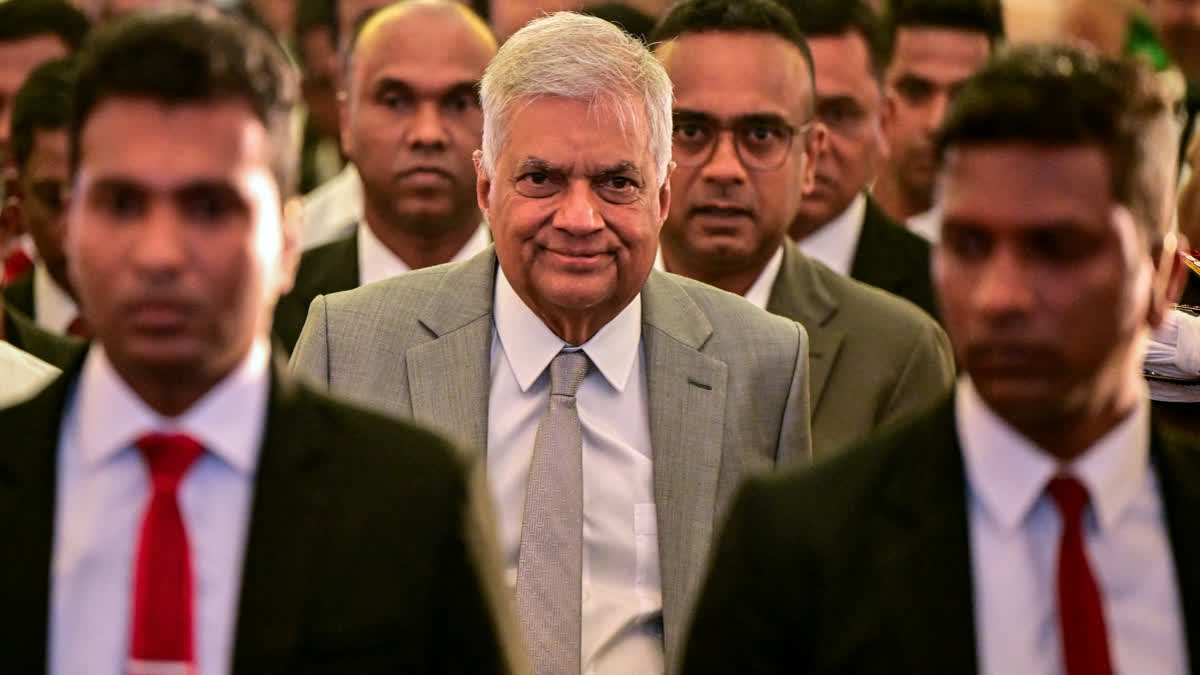Colombo (Sri Lanka): Sri Lanka had no option but to agree to an International Monetary Fund bailout that required tough austerity measures, President Ranil Wickremesinghe said Thursday as he launched his re-election campaign. An unprecedented economic crisis two years ago led to months-long food and fuel shortages, triggering street protests that forced Wickremesinghe's predecessor to briefly flee the country.
The 75-year-old president said the $2.9 billion IMF rescue package he negotiated last year required reforms that the island must implement or risk a repeat of those struggles. "The agreements with the IMF and by our bilateral lenders cannot be changed," he said at a campaign event to launch his manifesto ahead of September 21 polls.
"Some candidates think they can renegotiate, but that is only going to be a waste of time." His main rivals, opposition leader Sajith Premadasa, 57, and Marxist leader Anura Kumara Dissanayaka, 55, have vowed to open fresh talks with the IMF to rewrite the agreement. Premadasa has pledged to cut income taxes, which were doubled by Wickremesinghe.
"We will strengthen fiscal discipline as per the IMF agreement... However, we will make amendments," Premadasa's manifesto said. Dissayanaka's party says it will halt touted privatisations of state enterprises. Wickremesinghe said he had agreed with the IMF to ease the tax burden on middle and low income groups from next year, but did not give details.
Sri Lanka is still negotiating with international bondholders after defaulting on its $46 billion foreign debt in 2022, a year when the economy shrunk by 7.3 percent. Wickremesinghe is also facing a challenge from the largest party in parliament which had backed his ascension, but where his predecessor's family still wields great influence.
Lawmaker and Rajapaksa clan scion Namal, 38, is among the 38 other candidates challenging Wickremesinghe in next month's poll. Wickremesinghe is also under fire for refusing to fund a local government election last year, saying the country had no money to pay for it. The Supreme Court ruled last week that he was guilty of violating the fundamental rights of Sri Lankan voters as a result and ordered it to be held as soon as possible.



